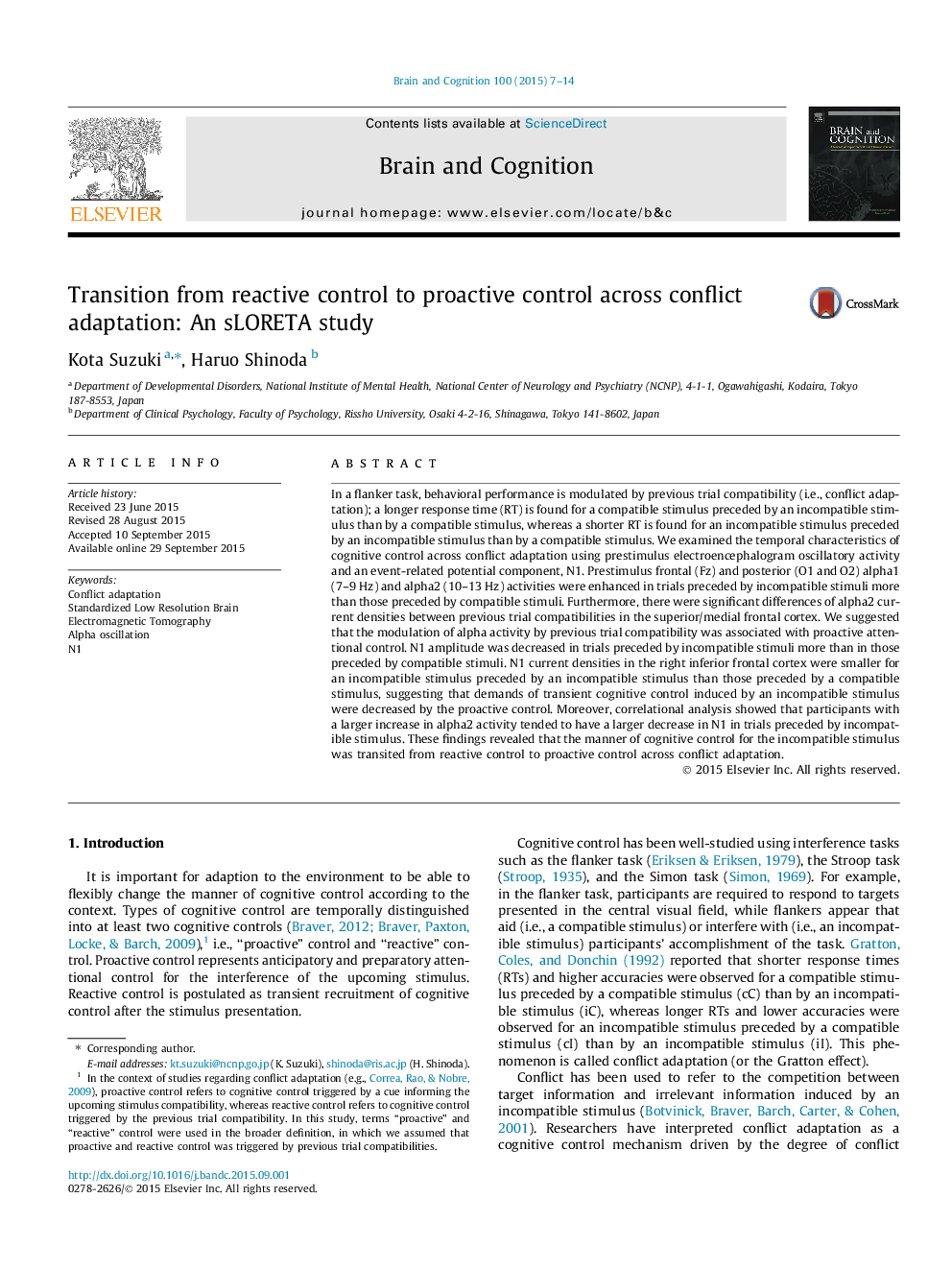| کد مقاله | کد نشریه | سال انتشار | مقاله انگلیسی | نسخه تمام متن |
|---|---|---|---|---|
| 923917 | 1473971 | 2015 | 8 صفحه PDF | دانلود رایگان |

• Alpha activity was enhanced in trials preceded by incompatible stimuli.
• N1 amplitude was decreased in trials preceded by incompatible stimuli.
• The superior/medial frontal cortex was associated with proactive control.
• The right inferior frontal cortex was associated with reactive control.
• Frontal alpha activity was negatively correlated with N1.
In a flanker task, behavioral performance is modulated by previous trial compatibility (i.e., conflict adaptation); a longer response time (RT) is found for a compatible stimulus preceded by an incompatible stimulus than by a compatible stimulus, whereas a shorter RT is found for an incompatible stimulus preceded by an incompatible stimulus than by a compatible stimulus. We examined the temporal characteristics of cognitive control across conflict adaptation using prestimulus electroencephalogram oscillatory activity and an event-related potential component, N1. Prestimulus frontal (Fz) and posterior (O1 and O2) alpha1 (7–9 Hz) and alpha2 (10–13 Hz) activities were enhanced in trials preceded by incompatible stimuli more than those preceded by compatible stimuli. Furthermore, there were significant differences of alpha2 current densities between previous trial compatibilities in the superior/medial frontal cortex. We suggested that the modulation of alpha activity by previous trial compatibility was associated with proactive attentional control. N1 amplitude was decreased in trials preceded by incompatible stimuli more than in those preceded by compatible stimuli. N1 current densities in the right inferior frontal cortex were smaller for an incompatible stimulus preceded by an incompatible stimulus than those preceded by a compatible stimulus, suggesting that demands of transient cognitive control induced by an incompatible stimulus were decreased by the proactive control. Moreover, correlational analysis showed that participants with a larger increase in alpha2 activity tended to have a larger decrease in N1 in trials preceded by incompatible stimulus. These findings revealed that the manner of cognitive control for the incompatible stimulus was transited from reactive control to proactive control across conflict adaptation.
Journal: Brain and Cognition - Volume 100, November 2015, Pages 7–14